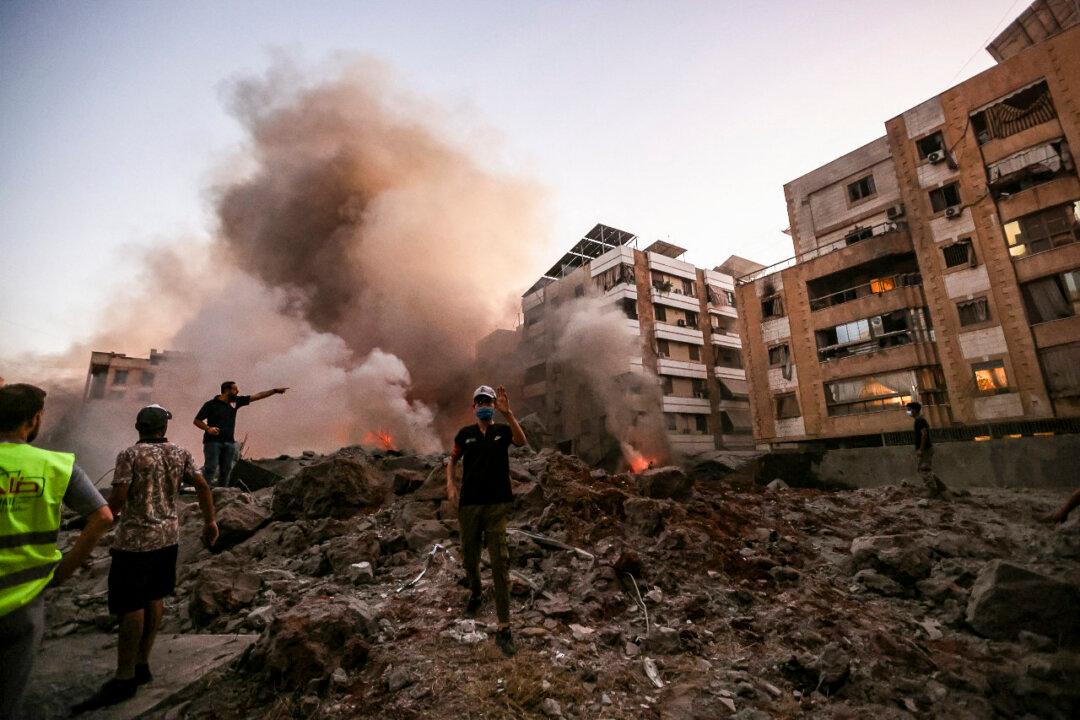Israeli forces launched an attack on the central headquarters of Hezbollah in Beirut on Friday, leveling several buildings in a series of missile strikes.
The Israel Defense Forces (IDF) said on Sep. 27 that it conducted the strikes against Hezbollah in the Lebanese capital. It remains unclear if Hezbollah Secretary General Hassan Nasrallah was killed in the strike.




